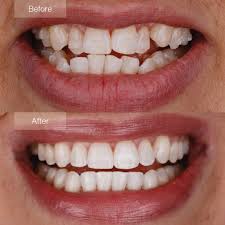Zygomatic Implants
Zygomatic implants are a specialized type of dental implant designed for patients with significant bone loss in the upper jaw, making traditional implants challenging. Unlike conventional implants that are placed in the jawbone, zygomatic implants are anchored in the zygomatic bone (cheekbone), providing a stable foundation for prosthetic teeth. This approach allows for immediate loading of the implants, often enabling patients to receive a full set of functional teeth in a single day. Zygomatic implants offer a viable solution for those who may have been told they are not candidates for dental implants due to insufficient bone density in the upper jaw.
Why Choose Zygomatic Implants?
Here are four reasons to choose zygomatic implants:
Zygomatic implants are specifically designed for patients with significant upper jaw bone loss, making them a suitable option when traditional implants are not feasible.
Zygomatic implants are specifically designed for patients with significant upper jaw bone loss, making them a suitable option when traditional implants are not feasible.
The procedure often requires less invasive techniques compared to extensive bone grafting, reducing recovery time and the number of surgeries needed to restore the smile.
Anchoring the implants in the zygomatic bone provides a strong and stable foundation, ensuring that the prosthetic teeth are securely held in place, even under significant bite forces.
How Do Zygomatic Implants Work?
Consultation and Planning
The process begins with a thorough examination and imaging studies, such as 3D scans, to assess the patient's bone structure and determine the ideal placement of the zygomatic implants. The dentist develops a customized treatment plan based on the patient's specific needs and goals.
Anesthesia and Implant Placement
During the surgical procedure, local anesthesia or sedation is administered to ensure the patient is comfortable. The dentist then makes incisions in the gum tissue to access the zygomatic bone, where the implants are carefully inserted at a specific angle to provide maximum stability.
Temporary Prosthesis Attachment
Once the zygomatic implants are securely placed, a temporary prosthesis is often attached, allowing the patient to leave with functional teeth on the same day. This immediate loading helps restore aesthetics and enables patients to resume normal activities quickly.
Healing and Final Prosthesis Fitting
After a healing period of several months, during which the implants integrate with the zygomatic bone, a final custom-made prosthetic arch is fitted. Follow-up appointments ensure proper alignment and function, resulting in a stable and natural-looking smile.
Hear from Our Satisfied Patients

“Choosing zygomatic implants at ALBGTC was a game-changer for me! After struggling with bone loss and being told I couldn’t get traditional implants, the team here offered a solution that gave me hope. The procedure was smooth, and I was thrilled to leave with a full set of teeth the same day. I can now smile confidently and enjoy my favorite foods again—thank you, ALBGTC!”
– Linda T.
“I can’t thank ALBGTC enough for my zygomatic implants. The staff was incredibly knowledgeable and supportive, helping me understand the entire process. I was amazed at how quickly I could get my new teeth, and the stability of the implants is fantastic. It feels like I have my natural teeth back—I’m so grateful for this life-changing experience!”
– James R.

FAQs
Candidates for zygomatic implants typically include individuals with significant bone loss in the upper jaw who may not be suitable for traditional dental implants. A thorough evaluation by a dental professional is necessary to determine eligibility.
Most patients can return to normal activities within a few days, but complete healing and integration of the implants may take several months. Follow-up appointments will help monitor progress during the recovery period.
The procedure is performed under local anesthesia or sedation, so patients should not feel pain during surgery. Post-operative discomfort is usually manageable with prescribed medications or over-the-counter pain relievers.
With proper care and regular dental check-ups, zygomatic implants can last many years, often similar to traditional implants. Their longevity largely depends on factors like oral hygiene and overall health.


